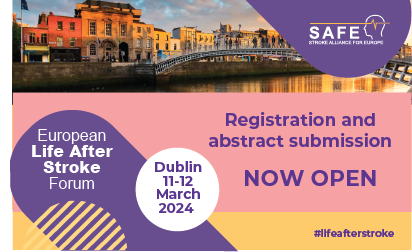
Sep 19, 2023
We are pleased to announce that our second in-person European Life After Stroke event website is now live, click here to view. Our registration and abstract submissions are also live.
Our Scientific Committee are in the process of confirming the final programme. Topics that we are likely to include are detailed below, but may be subject to change:
- What does a ‘good’ life after stroke look like?
- Reducing your risk of another stroke
- Practical tips to promote mental health
- Specific topics; managing fatigue and visual problems after stroke
We hope to see you in Dublin on the 11-12 March 2024!
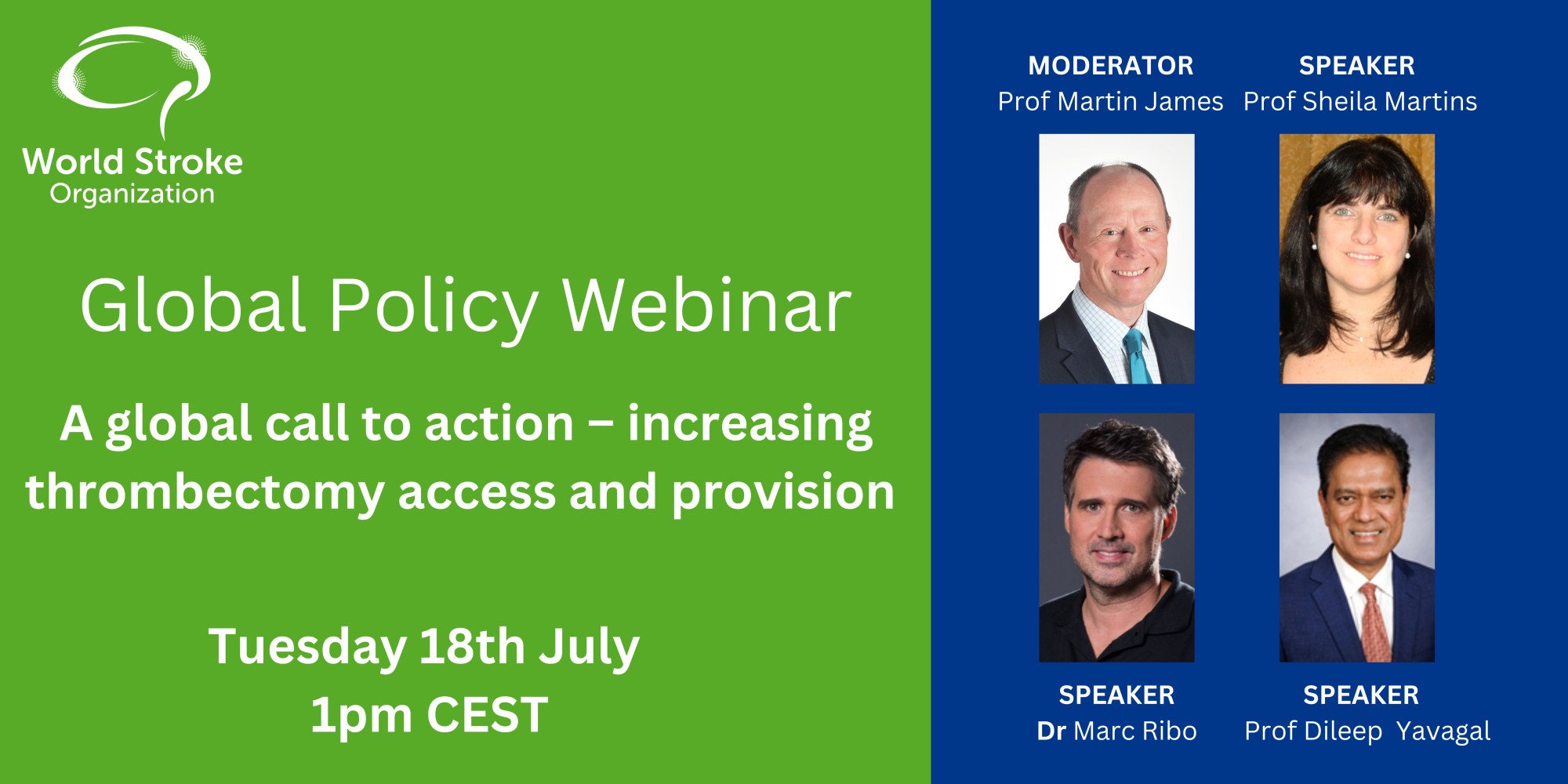
Jul 5, 2023
World Stroke Organization Global Policy Webinar
📅 Tuesday 18th July at 13.00 CEST
A global call to action – Increasing thrombectomy access and provision
Moderator: Professor Martin James
Speakers and topics:
1. Dileep Yavagal, SVIN
‘Understanding the global picture from policy to access’
2. Sheila Martins, WSO President
‘Developing stroke systems of care for thrombectomy in low-and-middle income countries’
3. Marc Ribó, Neurologist and Interventionalist
‘Organizing stroke care and measuring the results in a regional level: The experience of Catalonia’
Register here
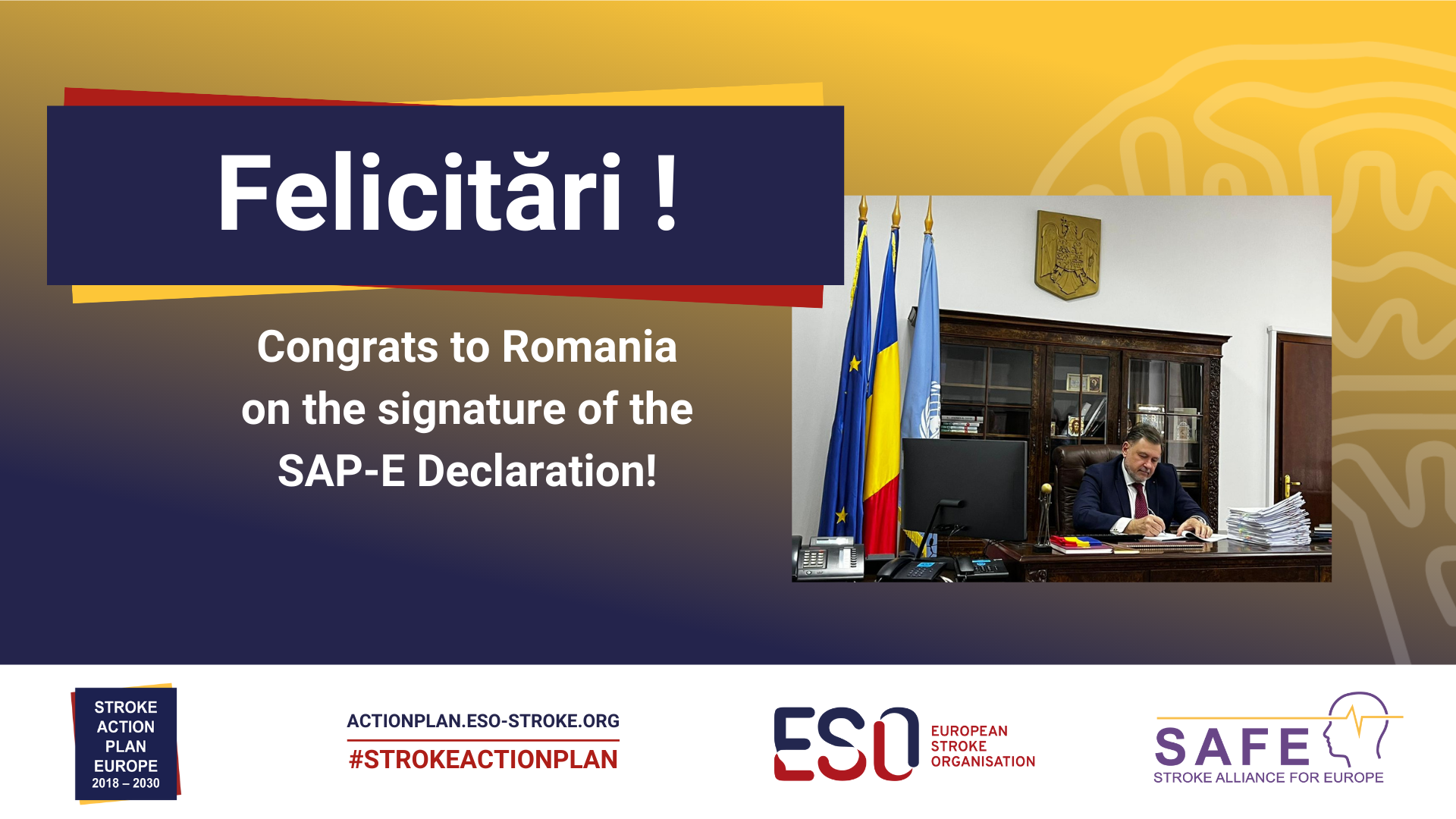
Jun 27, 2023
We are very pleased to announce that Romania has pledged to enhance its stroke care by endorsing the Declaration for Action on Stroke and enacting the Stroke Action Plan for Europe.
This is a significant step toward guaranteeing the highest standard of care and support for stroke patients in Romania. (Photo: Minister of Health, Professor Dr. Alexandru Rafila)
To find out more about the Stroke Action Plan for Europe click here
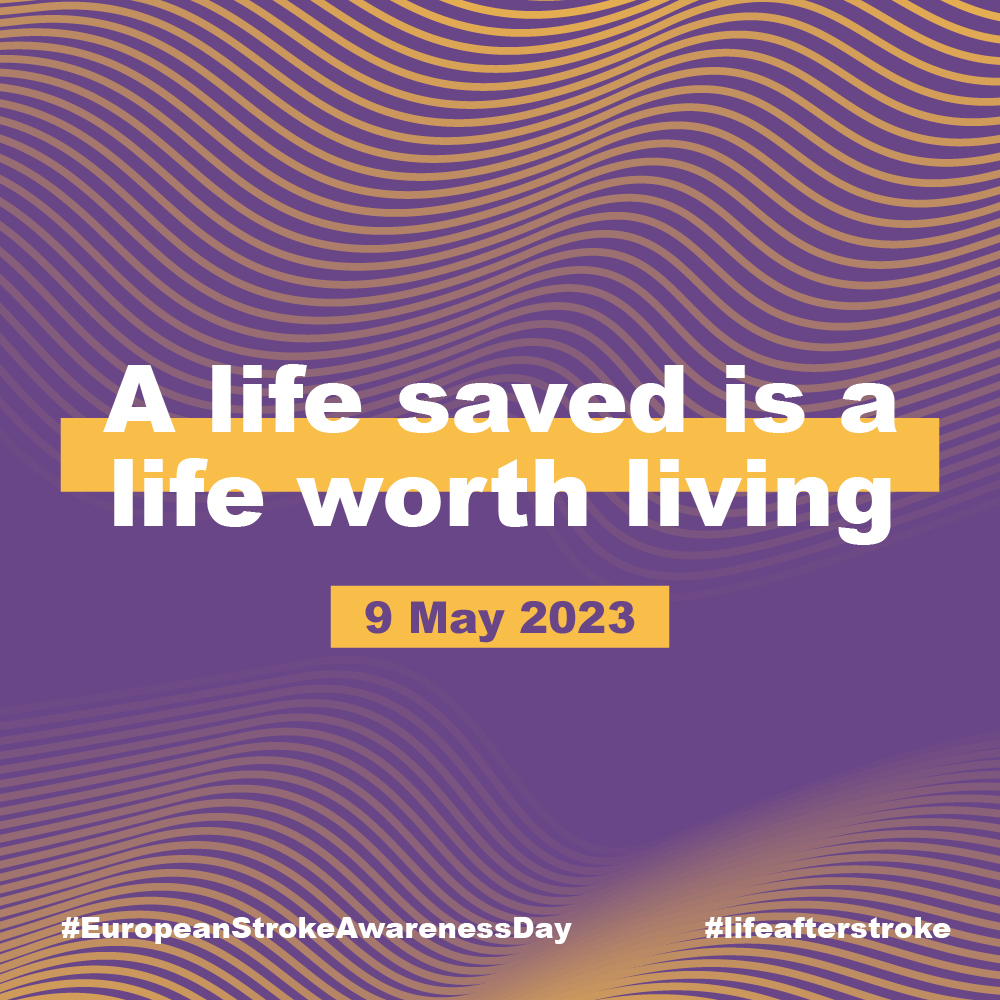
May 9, 2023
On European Stroke Awareness Day (9 May) we highlight how stroke survivors’ needs are being neglected and suffer as a result.
Our recent report, A life saved is a life worth living – the unmet needs of stroke survivors in Europe, reveals that one in eight stroke survivors has suicidal thoughts, around a third of stroke survivors will become clinically depressed in the years following their stroke and up to a quarter suffer ongoing problems with anxiety.
The report brings together for the first time, research in to over 80 unmet needs of stroke survivors in Europe. It concludes that more should be done to address the needs of the growing number of people surviving stroke.
Please read more here
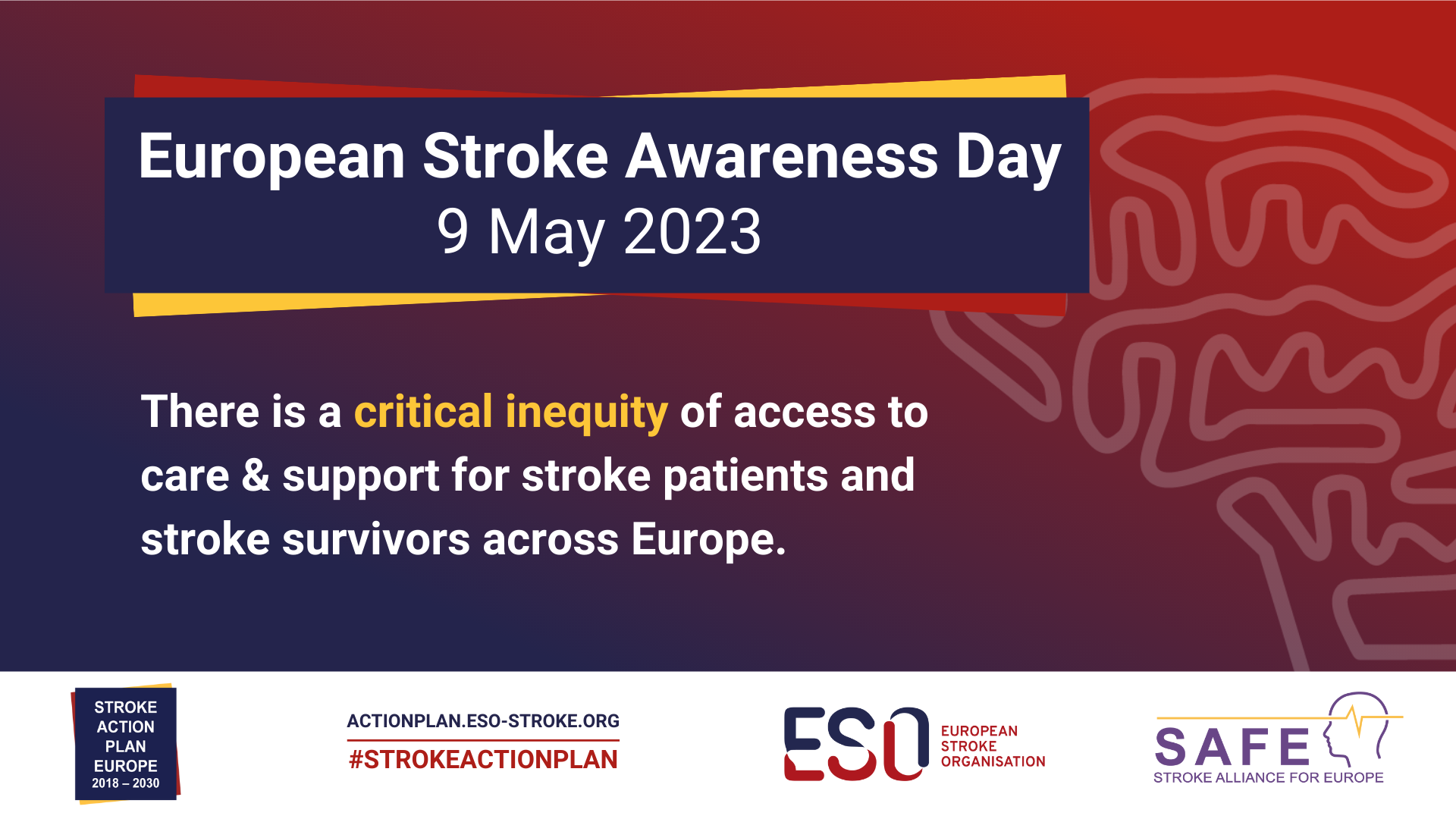
May 8, 2023
New data released today from the Stroke Action Plan for Europe Services Stroke Tracker, reveals the gross inequity of access to care and support for stroke patients and stroke survivors across Europe.
The Stroke Action Plan for Europe was launched in 2018, to provide a framework for European governments to improve stroke care and support for all citizens in Europe. As part of this Plan, and for the first time, data from across 36 countries across Europe, covering 12 key areas of improvement, has been collected and is available here [link to the website]. In summary the data shows:
- There is inequity in access to stroke care in Europe and insufficient access to care also in many high-income countries. This is the case for acute care, and to an even larger degree for rehabilitation and life after stroke support.
- National and/or regional data are crucial in planning, organising and documenting access to care; however, such data are lacking or incomplete in the majority of European countries. Most European countries do not have a National Stroke Plan or National/regional registries to monitor stroke care.
- The burden of stroke is predicted to increase but despite this, most countries do not have a plan for primordial or primary prevention.
Professor Hanne Karup Christensen, Stroke Action Plan for Europe steering committee chair: To reduce the burden of stroke in the years to come with its grave effects on individuals as well as societies, governments must prioritise implementing an adequate organization which include plans for primary and primordial prevention, National stroke plans and national/regional registries to monitor quality, outcomes and access to stroke care.
Arlene Wilkie, Director General, Stroke Alliance Eruope: This data released today shows a woeful lack of equitable access to stroke care and support across Europe. This is not good enough. Our governments must do more to prevent stroke, and when they do occur, ensure that every citizen has access to physical and emotional care and support in hospital as well as the ongoing long term support that each stroke survivor and carer needs when they go home. Urgent action is needed by each country to implement and fund a national stroke plan that covers everything from prevention, to acute care, rehabilitation and long term support.
All information can be found here
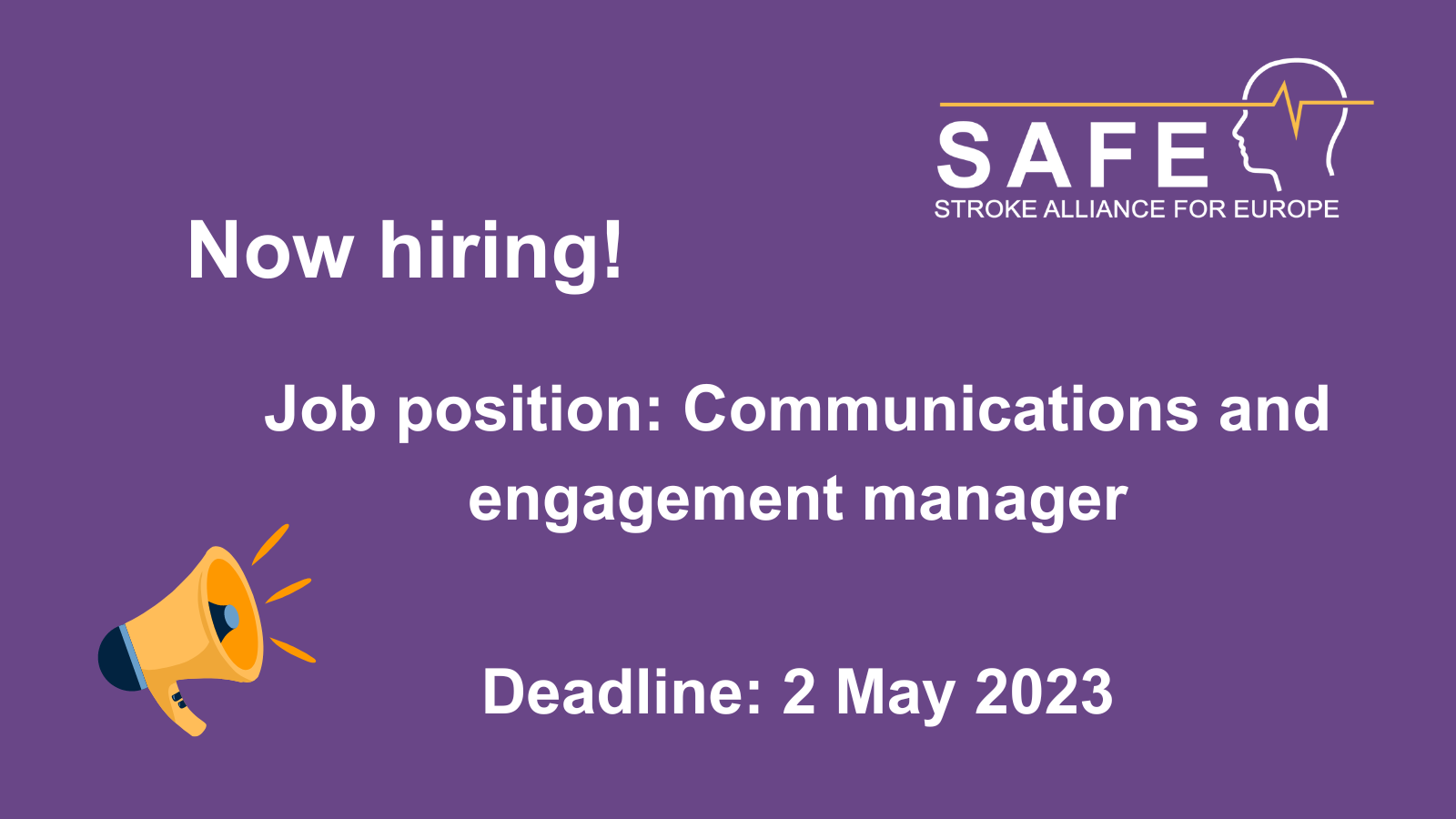
Apr 11, 2023
We are looking for a new European communications and engagement manager..
This person must be creative, passionate and productive with experience in health communication, using all the main channels of communication. and digital asset creation. This person must have excellent written and spoken English.
This role will help us build a strong community with our members and will also help us deliver our flagship projects including the European Life After Stroke Forum, the Stroke Action Plan for Europe and our EU research projects.
Read more and apply here: https://bit.ly/3nIN6Lm
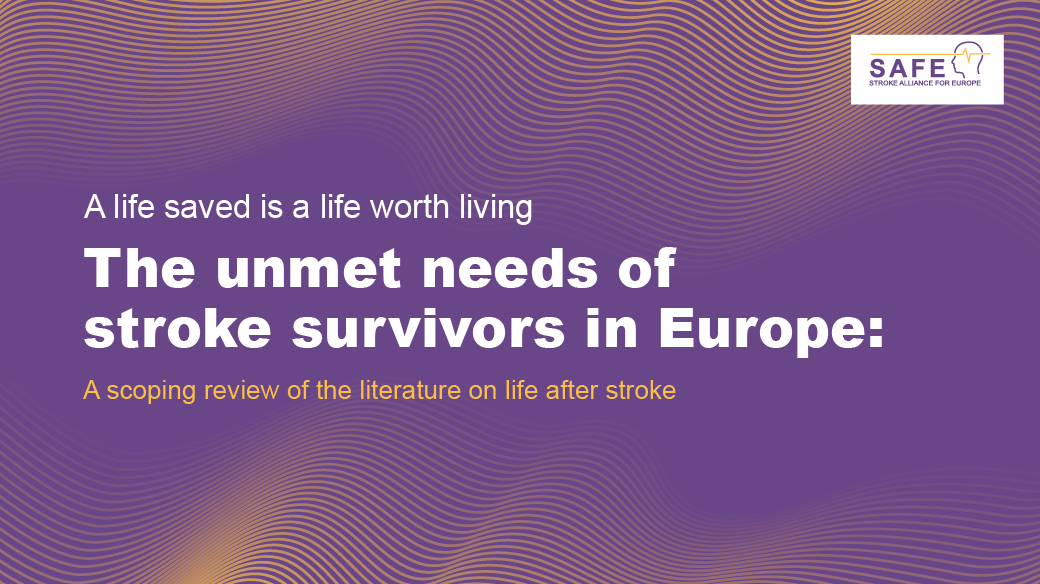
Mar 13, 2023
We launched a research report at the European Life After Stroke Forum (Friday 10 March) that reveals the long-term support to meet the needs of stroke survivors in Europe is severely lacking.
A life saved is a life worth living – the unmet needs of stroke survivors in Europe, is a comprehensive review and analysis of all the research on the needs and unmet needs of stroke survivors.
‘A life worth saving must also be worth living but our report shows that even basic things like access to ongoing rehabilitation or mental health support is a constant struggle for people who have had a stroke. All too often service provision and support stop a few weeks after someone has a stroke, but their needs persist.’ Arlene Wilkie, Director General, Stroke Alliance for Europe
Kings College London, who carried out the review, found over 80 distinct issues, where stroke survivors have said that their needs are not being met: from the need for ongoing physiotherapy to promote mobility; or psychological support to help prevent depression. The report also covered the need for better inclusion in social and community life and highlighted the often overlooked needs of informal carers.
‘In my long-term, still ongoing, recovery I have a strong need for continued physiotherapy and occupational therapy. It goes without saying, that for this to happen there is a need for financial resources.’ Jurg, stroke survivor, Switzerland
Read the summary report
European Life After Stroke Forum
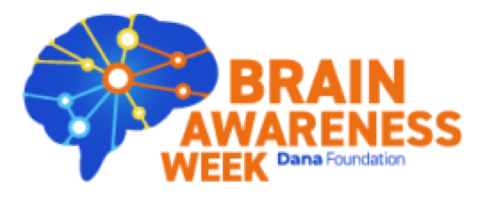
Mar 13, 2023
It is Brain Awareness Week this week (13 to 19 March) and we will be marking the occasion by sharing the importance of research in stroke by promoting EU-funded research projects that we are involved in.
Over the next few days, we will share news and insights into exciting stroke research in Europe.
Follow us on social media at @StrokeEurope (Twitter) and @SAFEStroke (Facebook), #BrainAwarenessWeek.
We will be highlighting three innovative projects:
- ANGIE – @ANGIE_h2020
- RESQ+ – @strokecareresq
- VALIDATE – @VALIDATEproject
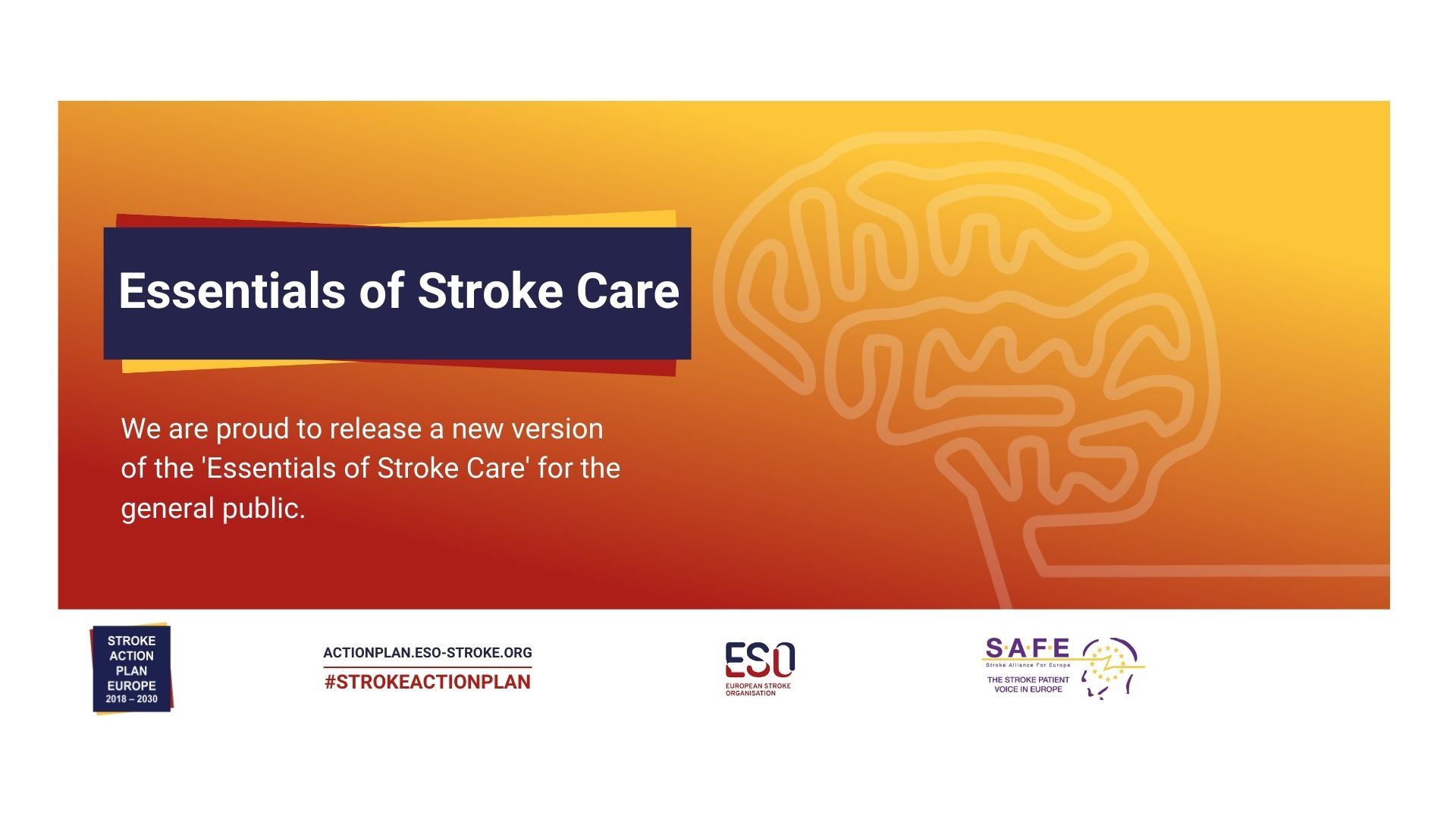
Feb 28, 2023
The Essentials of Stroke Care was created to be a guide for stroke health professionals and planners. This latest version is for the general public and lays out what care and support every stroke survivor should receive.
This guide provides stroke survivors, their relatives, carers, and advocates with a checklist against which they can assess the quality of their care.
It includes the latest information and resources to help those affected by stroke.
Download a copy at actionplan.eso-stroke.org/wp-content/uploads/2023/02/SAP-E_Lay-Version_Essentials-of-Stroke-Care.pdf
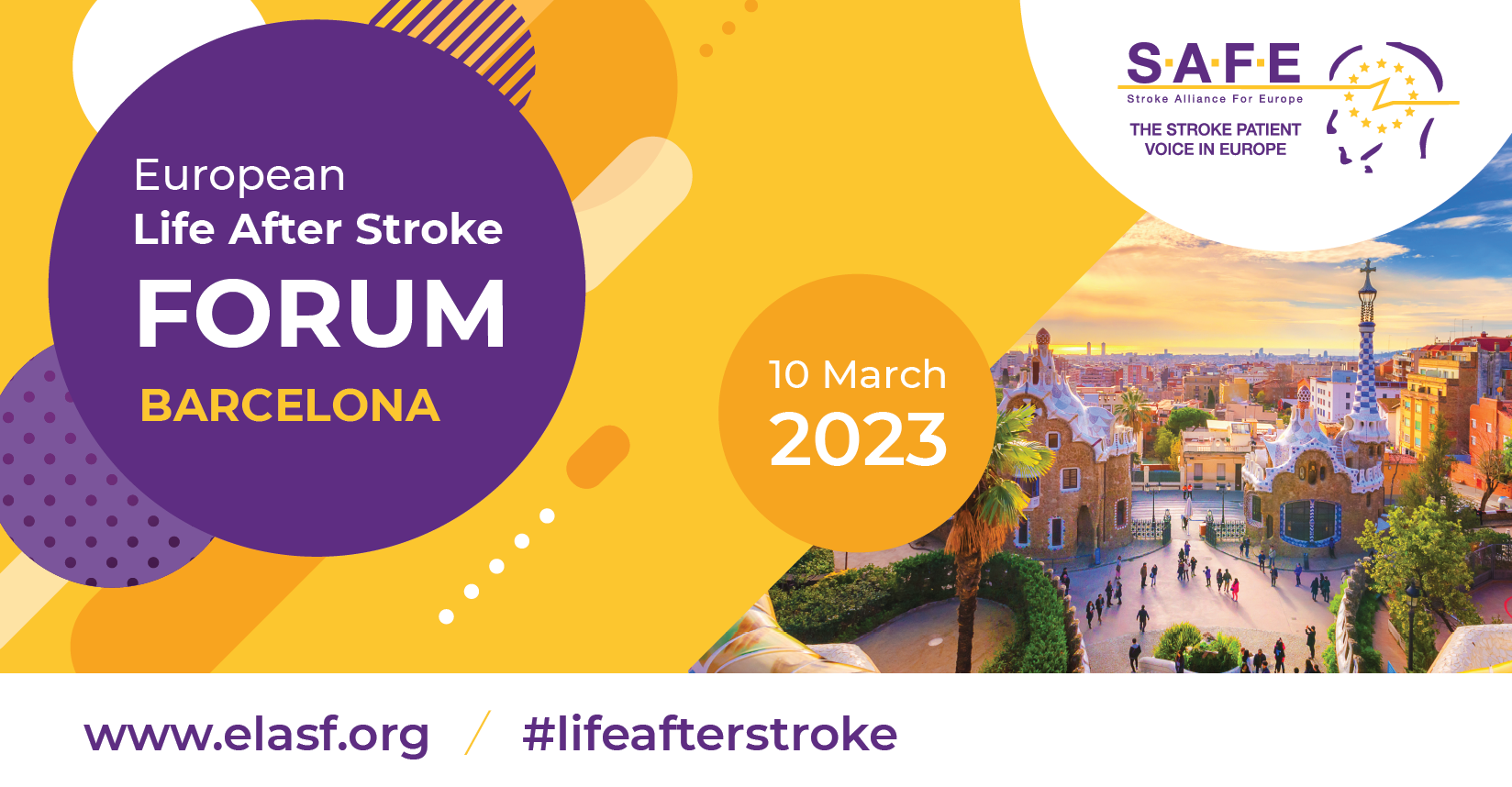
Feb 28, 2023
We are pleased to confirm our full programme for the European Life After Stroke Forum on Friday 10 March in Barcelona, Spain.
About the Forum
The Forum is the place to find the latest evidence and research in life after stroke, as we all know, a neglected area of stroke care. Our aim is to build the life after stroke healthcare, research and patient community, stimulate debate and build our collective knowledge in life after stroke. The overall goal is to improve the quality of life after stroke for the nine million people living with stroke in Europe.
Programme overview
Our forum programme covers a range of topical issues in life after stroke and will include keynote presentations by eminent speakers supplemented by contributed talks and a poster session.
| 09.15-09.30 |
Open |
| 09.30-10.45 |
Plenary 1 – The focus on life after stroke |
| 10.45-11.30 |
Coffee/exhibition/guided tours/ poster talks |
| 11.30-12.30 |
Parallel 1 – Driving after stroke |
| |
Parallel 2 – Debate: Stroke survivors should be empowered to live life well |
| |
Parallel 3 – Intimacy, relationships and sexual wellbeing after stroke |
| |
Parallel 4 – Physical exercise after stroke |
| 12.30-13.40 |
Lunch/exhibition//guided tours/ poster talks |
| 13.40-14.55 |
Plenary 2 – Secondary prevention |
| 15.00-16.00 |
Parallel 5 – Driving after stroke |
| |
Parallel 6 – Highest scoring abstracts |
| |
Parallel 7 – Physical exercise after stroke |
| |
Parallel 8 – Intimacy, relationships and sexual wellbeing after stroke |
See our final programme at bit.ly/3GeAgvr
There are still a few remaining places available at bit.ly/3UDIuli
Page 3 of 77«12345...102030...»Last »














